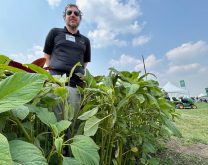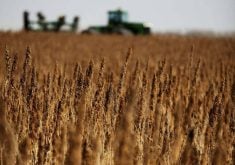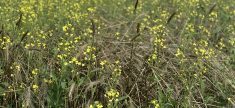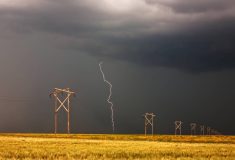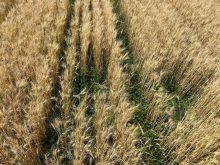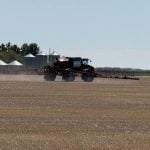If Manitoba canola grower Ed Rempel was 10 years younger and had more than one field, he’d be all over the Canola 100 challenge.
Even as it stands, he may still throw his air seeder into the ring and join what is expected to be a few hundred Canadian farmers involved in a three-year competition to produce a record 100-bushel yield on a 50-acre plot of dryland canola, in a bid for bragging rights and a grand prize that includes timed-use of a fleet of John Deere equipment.
Read Also
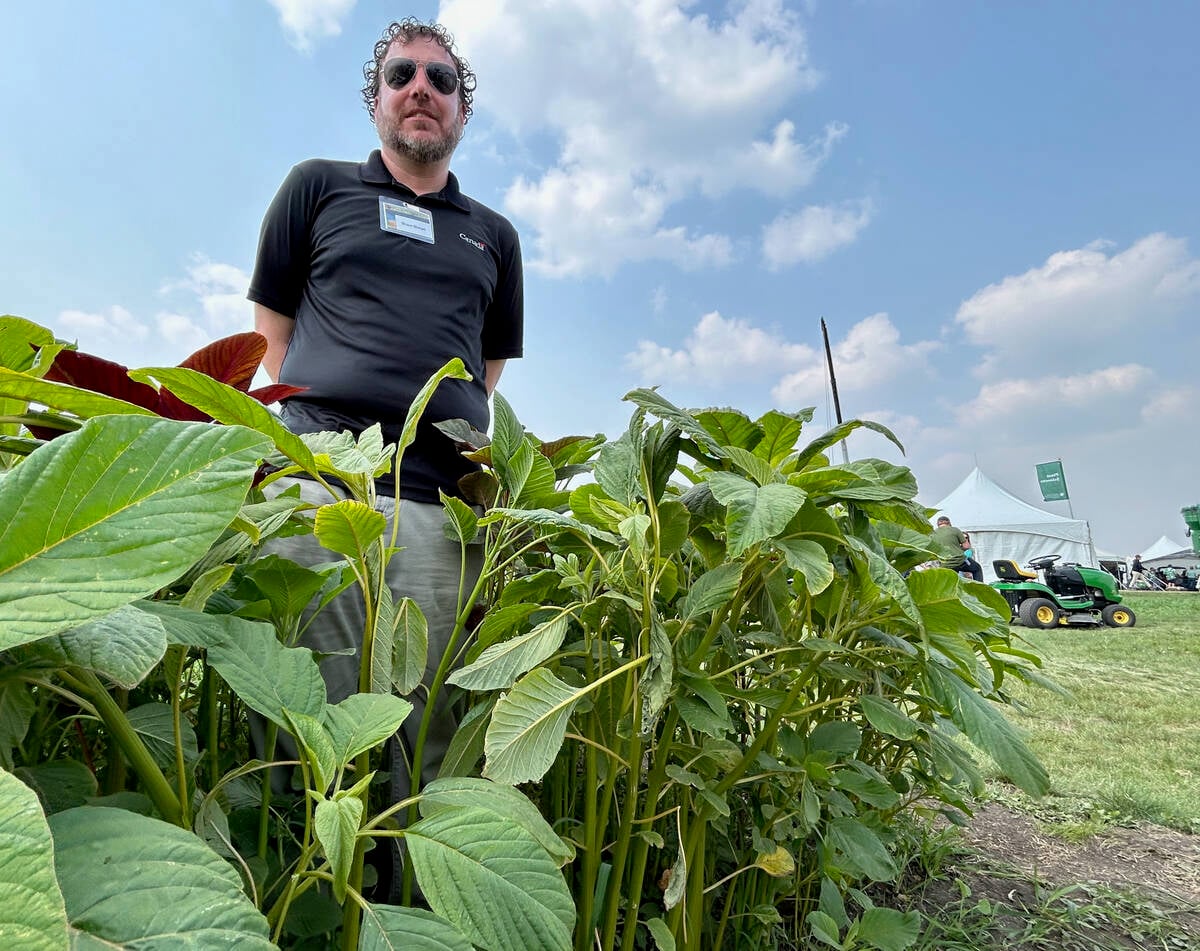
Glufosinate-resistant waterhemp appears in U.S. Midwest
News of glufosinate-resistant kochia in the U.S. is concerning as farmers are losing options to control waterhemp, also of the pigweed family.
“I think it sounds like just a crazy, fun challenge,” says Rempel, a semi-retired farmer from Starbuck who is also president of the Manitoba Canola Growers. “I’ve only got one field left and a I try to follow a four-year rotation, but I’m really tempted to try the challenge myself.”
Rempel is referring to the Canola 100 challenge launched earlier this year in a joint announcement by the consulting firm Agri-Trend Agrology, Glacier Farm Media and John Deere. The challenge, which is open to all Canadian farmers (Ontario and west), is to produce a canola crop, sometime over the next three growing seasons, with an average 100-bushel yield over a 50 acre field. Farmers need to register for the competition, they can use just about any crop input tool they can find (except for a midnight irrigation treatment). Fields will be monitored and measured and the first grower to produce a 100-bushel average wins the grand prize of 100 hours use of a complete fleet of John Deere equipment — tractor, air seeder, sprayer, swather and combine — whatever size fits their farm. At the end of the 2018 growing season if no one has reached 100 bushels, the prize will be awarded to the highest yield over the three years. Check out contest details at the Canola 100 website: www.agriprize.com
Enormous genetic potential
“About 35-years ago when I was sitting in a soils lab at the University of Manitoba school of agriculture, there was a Professor Ridley and he talked about the enormous genetic potential there is in a canola seed,” says Rempel. “And he also told us that once that seed hits the ground it begins to lose potential. There is no doubt in my mind with varieties we have today the genetic potential is there to achieve a 100-bushel yield, we just have to figure out where the roadblocks are in production and let it grow.”
- More Grainews: Holy canola! A 74-bushel average yield
Rempel says over the years he has achieved 65-bushel per acre canola yields on his farm — “that’s on good ground, but I didn’t do anything fancy,” he says. “I think whoever wins this is going to have to throw everything they can at this crop. It might be a cruel contest in terms of I doubt if producing that 100 bushels will be economically sound, but at least you’ll have bragging rights and it will be fun. I think the competition is a marvelous thing.”
Rob Saik, CEO of Agri-Trend Agrology, who came up with the Canola 100 contest idea, says as of late November about 80 farmers had pre-registered for the competition. He expects by the time registration closes March 31, 2016 there will be a few hundred.
“I believe this contest is going to create a small community of farmers all keen on this skills-based competition,” says Saik. “Other than the crop has to be produced without irrigation, it is wide open. Farmers can use whatever genetics or seed treatments, herbicides, or foliar fertility they want to achieve this yield. And that is a pretty impressive prize at the end — 100 hours use of a complete line of John Deere field equipment has a significant value.”
Canola 100 is looking for serious competitors. There is a $100 registration fee. Farmers need to submit the legal description of the field where the canola will be grown. There is also a $1,000 third-party verification fee to verify the size of the field, the production practices and the yield.
Hit 100 already
While a 100-bushel canola yield may sound a bit whimsical considering the Canadian average yield is currently about 35 bushels per acre, Murray Hartman, Alberta Agriculture and Forestry canola specialist says it isn’t an unreasonable goal.
“We have achieved 100-bushel yields in some of our south central Alberta research plots,” says Hartman. “I know they are only research plots, but they were larger, fairly good size. In 2013 we were seeing 100-bushel yields and really we weren’t doing anything extra special to achieve that — it is pretty basic production.”
Hartman says all the basic production recommendations still apply — proper seeding rate, shallow seeded into a firm, moist seed bed, proper fertility, and use of input tools to control weeds, crop pests and disease. “Of course with any crop the weather is going to be a major factor,” he says. “You need the moisture and ideal temperature — those will be the determining factors.”
Hartman says a 100-bushel yield is attainable. There may only be “.01 per cent of farmers who will achieve that over a field, but it is possible.”
While he realizes this is a contest, he says the one important factor that has to be weighed if that yield is ever considered on a commercial scale — does it make economic sense? “The bottom line is what is your net profit,” says Hartman. “You can spend the money to achieve the high yield, but what is your return per acre? A lower yield with reduced input costs may in fact be more profitable.”




